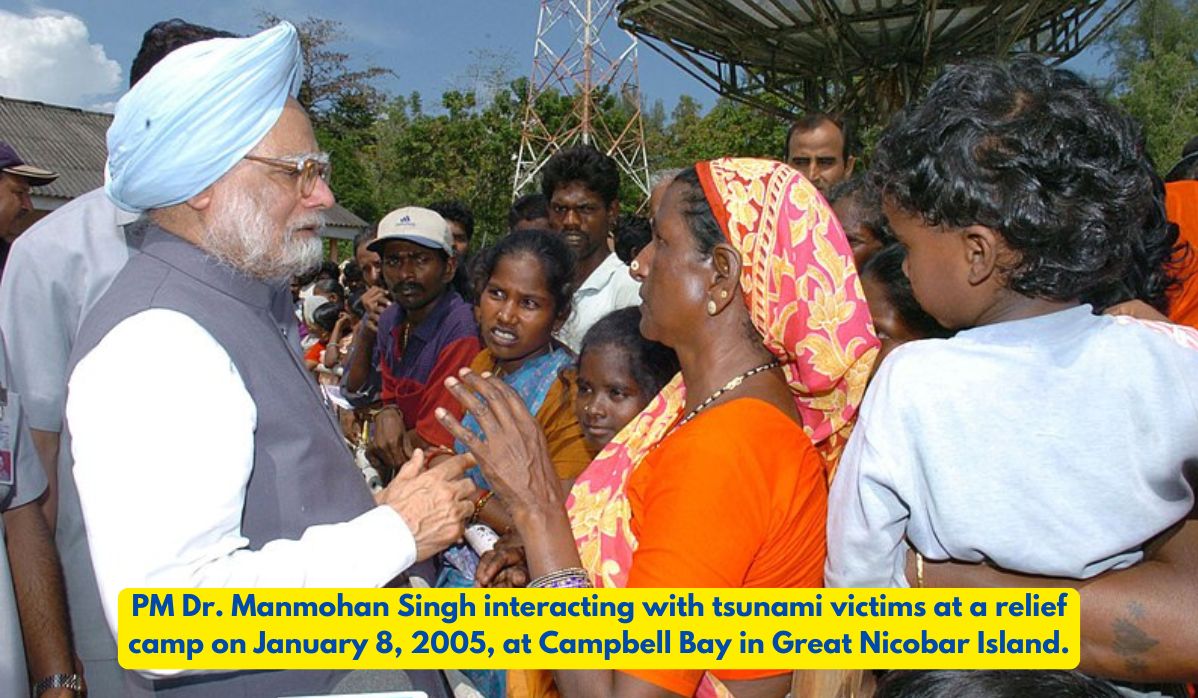Tarun Karthick
Sri Vijaya Puram, 27 December 2024
India mourns the loss of Dr. Manmohan Singh, former Prime Minister and one of the most distinguished statesmen and economist in the country’s history. Dr. Singh, who passed away last night, leaves behind a legacy that shaped modern India. His calm demeanour, intellectual prowess, and relentless dedication to public service earned him respect across political and ideological divides.
Dr. Manmohan Singh is best known for his pivotal role in liberalising India’s economy during his tenure as the Finance Minister in 1991-92. In a period marked by an acute balance-of-payments crisis, Dr. Singh’s economic reforms heralded a new era for India. His bold steps, including dismantling the License Raj, opening up foreign investment, and introducing a more market-driven approach, transformed the Indian economy into one of the fastest-growing in the world.
Under his stewardship, India saw an exponential rise in foreign investments, industrial growth, and global economic standing. These reforms not only stabilised the Indian economy but also lifted millions out of poverty, setting the stage for sustained growth over the next decades.
As Prime Minister from 2004 to 2014, Dr. Singh oversaw a period of significant economic expansion, technological advancement, and social reforms. Landmark initiatives such as the National Rural Employment Guarantee Act (NREGA), the Right to Information Act, and the Civil Nuclear Agreement with the United States defined his tenure. His administration’s focus on infrastructure development and inclusive growth left an indelible mark on the nation.
Dr. Singh’s soft-spoken yet resolute diplomacy earned him accolades globally. His commitment to peace, development, and cooperation stood as a testament to his belief in India’s role as a responsible global leader.
Dr. Singh shared a special connection with the Andaman and Nicobar Islands. During his tenure as Prime Minister, he visited the islands multiple times, emphasising their strategic importance and advocating for their development. His government launched various initiatives to enhance connectivity, improve infrastructure, and boost the islands’ tourism potential.
In the aftermath of the devastating 2004 Indian Ocean tsunami, Dr. Singh’s leadership was instrumental in relief and rehabilitation efforts in the Andaman and Nicobar Islands. His administration’s swift response, allocation of resources, and long-term reconstruction plans showcased his compassion and administrative acumen.
It is a poignant coincidence that Dr. Singh’s passing occurred on the 20th anniversary of this tragic event. His role in spearheading the nation’s tsunami relief efforts remains one of the defining moments of his leadership, demonstrating his ability to unite the country and provide solace in times of unparalleled crisis.
Dr. Singh was not only a man of action but also of profound introspection. In 2013, during his second term as Prime Minister, he remarked, “History will be kinder to me than the contemporary media.” These words reflected his stoic acceptance of criticism during challenging times and his unwavering focus on what he believed was best for the country. Today, as we look back on his monumental contributions, these words resonate deeply, underscoring the enduring value of his leadership.
Dr. Manmohan Singh’s passing is a profound loss for India and the world. He was a visionary leader whose contributions will continue to inspire generations. From the corridors of academia to the highest offices of governance, his life’s work reflected a singular mission: to make India stronger, fairer, and more prosperous.
As the people of Andaman and Nicobar Islands join the nation in mourning, they also celebrate the life of a leader who held their welfare close to his heart. Dr. Singh’s legacy will endure, reminding us of the power of humility, intellect, and perseverance in shaping a better future for all. And indeed, as he predicted, history has judged him kindly.

